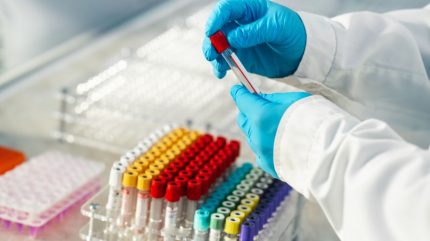
Sanofi has received orphan designation from the European Medicines Agency (EMA) for rilzabrutinib, a reversible covalent Bruton’s tyrosine kinase (BTK) inhibitor, to treat immunoglobulin G4 (IgG4)-related disease (IgG4-RD), a rare immune-mediated condition.
Rilzabrutinib’s potential was demonstrated in a Phase II study involving individuals with IgG4-RD. Over 52 weeks, patients treated with rilzabrutinib experienced fewer disease flares and showed improvement in other disease markers and reduced need for glucocorticoids.

Discover B2B Marketing That Performs
Combine business intelligence and editorial excellence to reach engaged professionals across 36 leading media platforms.
In addition to treating IgG4-RD, rilzabrutinib has been recognised internationally with orphan designations for immune thrombocytopenia (ITP) across the US, EU and Japan.
It also received orphan status in the US for warm autoimmune haemolytic anaemia and sickle cell disease, and fast-track designation by the US Food and Drug Administration (FDA) for ITP and IgG4-RD.
Rilzabrutinib is currently undergoing regulatory review in major markets, including the US, the European Union and China, specifically for ITP treatment applications.
The FDA has set the target action date for its regulatory decision on ITP for 29 August 2025.

US Tariffs are shifting - will you react or anticipate?
Don’t let policy changes catch you off guard. Stay proactive with real-time data and expert analysis.
By GlobalDataDespite these advancements, it is important to note that rilzabrutinib remains an investigational medicine. Its efficacy and safety are yet to receive endorsement from any health authority worldwide.
IgG4-RD is characterised by systemic inflammation causing progressive damage and dysfunction across various organs, which can be fatal if left untreated.
Flare-ups resulting in exacerbated symptoms are common among those affected by this chronic condition.
In July 2025, the European Commission (EC) approved Sanofi’s Sarclisa for use in combination with a regimen of bortezomib, lenalidomide and dexamethasone (VRd) for the treatment of multiple myeloma in adults. This decision is based on the results from the first part of the GMMG-HD7 Phase III trial.




